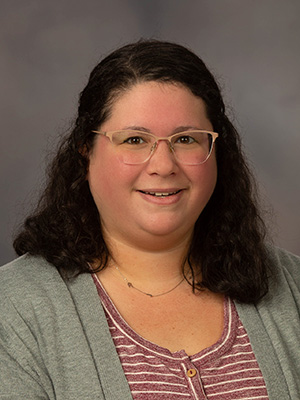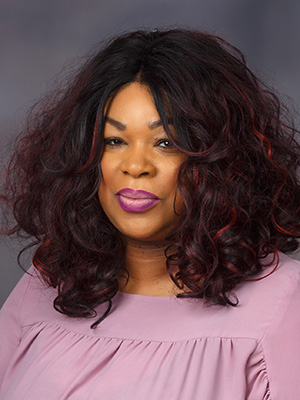Research and scholarship efforts

Sarah Thomas
Education Administrator,
PhD in Nursing program
Tips to increase your scholarly publications
In 2023, the School of Nursing faculty had a record 59 publications. If you have ever wondered how research and teaching faculty have overcome the barriers to publishing their work, read on for tips shared by them.
First and foremost, make sure you choose a topic that interests you. Once you have selected a topic, you must be intentional about finding a time to write. Dr. Jennifer Hargett, associate professor, and Dr. Deborah Konkle-Parker, professor and Harriet G. Williamson Endowed Chair of Population Health Nursing, recommend blocking time on your calendar so there is a set time available during the week to dedicate to writing.
Konkle-Parker closes Outlook during this set time, so there are no distractions from email. Hargett does small work outside the appointment time, including adding references to a folder to “hit the ground running” during her designated time.
Writing does not have to be done in isolation; consider joining or creating a collaborative writing team. Dr. Angela Duck, associate professor and PhD in Nursing program director, said of writing teams, "[They] draw on the strengths of each member, embrace the diversity of thought and writing styles, align similar interests, and offer accountability.”
Konkle-Parker further shares, "Working in a team lightens the load. [It allows to] divide up the manuscript so that different people are doing different sections, and have someone, usually the first author, put all the pieces together and smooth out the differences.” Assistant Professor Dr. Melissa Klamm advises finding a writing team and setting frequent meetings—once or twice a month—to keep each other on track and accountable.
Choosing the right journal is an important part of the process. Dr. Carolann Risley, associate professor, states to read the instructions for each journal well and follow the editorial instructions given. Additionally, numerous faculty share that choosing the correct journal is essential. Assistant Professor Dr. Deloris Slade explains that you will have multiple journals on your list to which you would like to submit your article, but if a journal suggests submitting to one that is not on your list, you should consider that. Slade stated, “If it is not a pay to publish journal, consider submitting to that [journal] before moving on to your second choice.”
Finally, Klamm encourages the author not to get stuck in analysis paralysis. "Eventually, you have to hit the submit button and see what happens,” said Klamm.
If you need support or have questions, contact Dr. Lei Zhang, professor and associate dean for research and scholarship. He is happy to guide and support faculty as they work to become published.
VIP Team travel to D.C. for firearm violence annual meeting

Project Manager,
Violence Research Manager,
Research and Scholarship
Wheels were up when the Mississippi Violence Injury Prevention (VIP) team traveled to Washington, D.C., last month to attend the Community Firearm Violence Prevention Network Annual Meeting. The connection and camaraderie in the room were second to none. The meeting comprised youth leaders, community partners, educational facility teams and National Institutes of Health (NIH) representatives from different walks of life, states and communities. We have one common goal—to study the 'why' behind gun violence, prevent firearm injury and connect individuals with resources for change. Meeting discussions included the following topics:
- Racism and structural racism in research
- Policy, implementation and economic evaluation
- Lessons learned
- Intervention fidelity and dose
- Community engagement
- Place-based and objective data
Online meetings are wonderful and convenient, especially for connecting individuals around the globe; however, there is something to be said about face-to-face connections and interactions that cannot be replaced. Our time in Washington, D.C. was well spent as we have additional tools to push this incredible work forward.


